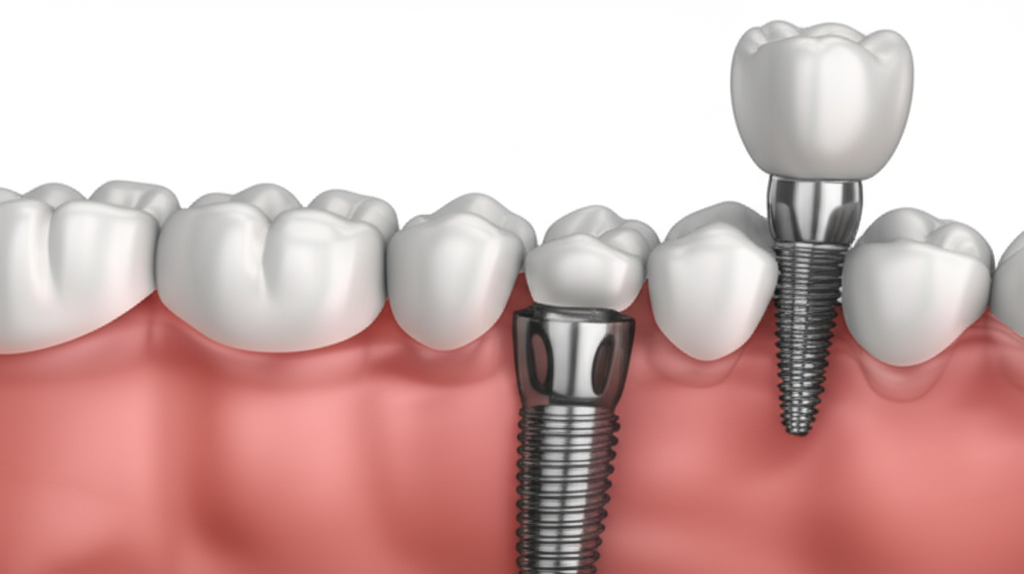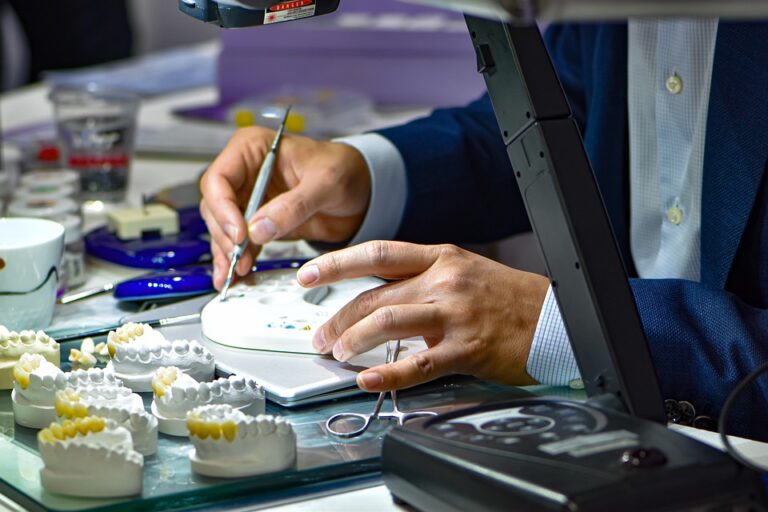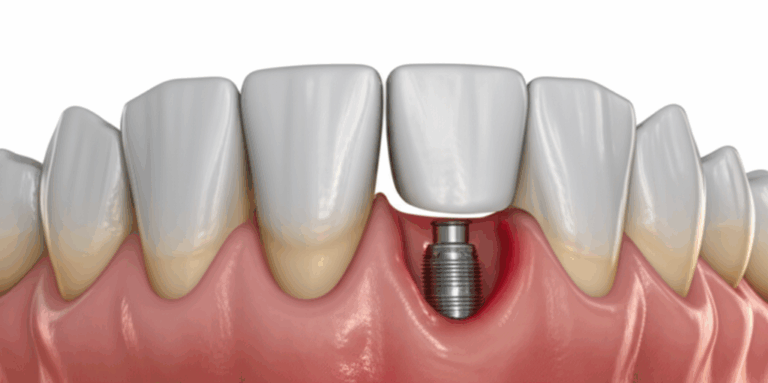
What Are the Risks of Dental Implants? A Simple Guide for Everyone
Thinking about getting dental implants? You’re not alone. Dental implants are a popular way to fix your smile, but like any surgery, they come with some risks. In this guide, I’ll break down the risks of dental implants in simple language. You’ll learn what can go wrong, how often problems happen, and most importantly—how you can keep your new teeth healthy. Whether you’ve already decided on implants or are still deciding, this article is for you.
Table of Contents
Why Should You Care About Dental Implant Risks?
Let’s be real. Losing a tooth—and needing a dental implant—is never easy. But before you go ahead, it’s smart to know the risks. Why? Because dental implants aren’t perfect. Things can go wrong if you’re not careful or if the dentist isn’t skilled. Problems like infections, pain, or the implant not staying in can happen to anyone. Knowing what to expect helps protect your smile for a long time.
What Are Dental Implants?
Dental implants are like fake tooth roots. Dentists put them into your jawbone, then add a fake tooth (crown) on top so it looks and feels like a real tooth. Implants are strong and can last a long time. Many people keep theirs for over 10 years—some even for life! Most modern implants are made from titanium or zirconia, which your body usually accepts.
Here’s a quick table showing dental implant parts:
| Part | What It Does |
|---|---|
| Implant post | Goes in jawbone (like a root) |
| Abutment | Connects post and crown |
| Dental Crown | Looks like your own tooth |
Implants work well in 95-98% of cases when done by a trained dentist (Moraschini et al., 2015). But it’s still good to know the risks—especially before you decide.
What Are the Most Common Dental Implant Risks?
No surgery is totally safe. Even if your dentist does everything right, some things can still happen. The most common are:
1. Infection at the Implant Spot
Bacteria can get in where the implant was placed. If you notice pain, swelling, pus, fever, or red gums, you might have an infection. Usually, antibiotics and good teeth cleaning fix things. Sometimes, though, the infection gets bad and the implant has to come out.
2. Nerve Damage
Your mouth has lots of nerves, especially in the lower jaw. If a dentist puts the implant too close to a nerve, you may feel numbness, tingling, or pain in your lips, chin, or tongue. This sometimes goes away, but rarely it can last.
How To Stop It:
- Dentists use special X-rays or CBCT scans to find the best place for the implant.
- Always ask if your dentist uses these scans.
3. Sinus Problems (Upper Jaw Only)
This only happens if you get implants in the upper jaw, near your nose. If the implant goes too far, it can poke into your sinuses. You might get nosebleeds or a stuffed-up feeling. Sinus lifts (adding bone) can help stop this.
4. Hurting Nearby Teeth or Blood Vessels
Sometimes, nearby teeth or blood vessels get hurt during the surgery. This can cause more pain, bleeding, or even damage to another tooth.
5. Swelling, Bruising, and Pain
Most people have some pain and swelling right after surgery. It usually goes away in a few days as you heal.
What Are Long-Term Dental Implant Problems?
Short-term problems are usually easy to fix. But sometimes risks don’t show up until weeks or months later. Here’s what to watch for over time:
1. The Implant Doesn’t Bond with Bone
This is just a fancy way of saying the bone doesn’t grow around the implant. If that happens, your implant won’t get strong. It can move or even fall out. This risk is higher if you have little bone, if you smoke, or if you put pressure on the implant too soon.
2. Peri-implantitis
Sounds scary, but it means a gum infection that eats bone around your implant, like gum disease with real teeth. You might see red, swollen gums, bleeding, pus, and even a loose implant. Not cleaning your teeth and smoking make this happen more often.
> Did you know? Studies say 10-20% of implants get peri-implantitis over time (Derks & Tomasi, 2015), but it’s much less likely if you brush well and see your dentist often.
3. Mechanical Problems
Let’s be honest—implants take a lot when you chew. Sometimes the connector or crown comes loose, cracks, or breaks. Rarely, the implant post itself can break. Biting ice, grinding teeth, and hard foods can all cause this.
4. Allergic Reaction
Some people are allergic to metals like titanium. It’s rare, but you might get a rash, swelling, or an itch in your mouth.
What Makes Dental Implants Fail?
Nobody wants their implant to fail. But if it happens, here’s why most often:
- Infection where the implant is
- Not enough jawbone to hold it
- Smoking after surgery
- Certain health problems (like bad diabetes)
- Grinding teeth (bruxism)
- Poor dentist planning or skill
- Not following aftercare instructions
Check out these common numbers:
| Cause of Failure | How Often? |
|---|---|
| Infection | 2-5% (early) |
| Peri-implantitis (bone loss) | 10-20% over time |
| Nerve damage | 0.5-2% (most get better) |
| Sinus problems (upper jaw) | 5-10% of cases |
| Loose/broken parts | 5-10% in 5-10 years |
Source: Different clinical studies (see references at bottom).
Do Medical Conditions Make Risks Worse?
Yes, they do. Some health problems make the risks higher:
- Uncontrolled Diabetes: If your blood sugar is high, your body heals slowly and you can get infections more easily.
- Autoimmune Diseases: Problems like lupus or arthritis can slow healing.
- Osteoporosis: Weak bones can’t always hold an implant, especially if you take certain bone medicines.
- Immunosuppressant Drugs: If you’ve had a transplant or are on some cancer drugs, your body won’t fight infection as well.
- Radiation or Chemotherapy: Cancer treatments in the head or neck can make surgery harder.
Tip: Always tell your dentist your full health history before any dental surgery.
How Do Lifestyle Choices Affect Your Implants?
Implants last longer if you take care of your body. Some habits make failure more likely:
1. Smoking and Dental Implants
If you smoke, your implant will heal a lot slower. Blood flow in your gums drops, making infection and bone loss more likely. In fact, smokers have up to 20% more failures than non-smokers (Strietzel et al., 2017).
2. Bad Oral Hygiene
Not brushing and flossing around your implant lets bacteria grow. This quickly causes peri-implantitis and can make the implant loose or fail.
3. Teeth Grinding (Bruxism)
You might not know you do this! Grinding puts big pressure on your new tooth, making screws come loose or break. Dentists might give you a soft night guard to protect it.
What Signs Mean Something’s Wrong?
It’s important to spot problems early so you can fix them. If you have any of these, call your dentist right away:
- Pain that gets worse days after surgery (not better)
- Swelling or bruising that gets worse, not better
- Pus, bleeding, or a bad taste in your mouth
- Numbness or tingling that won’t go away
- Red, swollen, or bleeding gums by the implant
- Pain while chewing or the tooth feels wobbly
- Bad breath that doesn’t go away
Don’t wait! Getting help fast can save your implant.
How Can You Make Dental Implants Safer?
Here’s the good news: you can lower your chances of problems by making smart choices. Here’s how.
1. Pick the Right Dentist
Your dentist’s skill matters a lot. Find someone with experience in oral surgery or gum work. Ask about their training, how many implants they’ve done, and if you can see results.
2. Get a Full Check-Up First
The best results start with careful checks. Make sure you have:
- 3D X-rays or CBCT scans (to check bones and nerves)
- Review of your health
- Talk about options like adding bone or a sinus lift if you need it
3. Follow All Aftercare Instructions
Yes, these rules do matter! Take any medicine your dentist gives you, avoid hard foods, and follow cleaning steps.
4. Clean Your Teeth Well Every Day
Brush twice daily with a soft toothbrush, use floss or special brushes around the implant, and rinse if your dentist says so.
Need tips on keeping your implants or real teeth healthy? Visit teeth overall health for advice.
5. Go to the Dentist Often for Check-Ups
Plan to see your dentist twice a year—or more if they say so. They have special tools to clean around implants without scratching them.
6. Deal with Problem Habits Fast
- Stop Smoking: Ask your doctor how to quit
- Control Diabetes: Keep blood sugar in check
- Wear a Night Guard if You Grind Your Teeth
What If a Dental Implant Fails?
Let’s say you do everything right, but your implant still fails. What then?
- Early Problems (First Months): Infections might be treated without removing the implant. If not, your dentist may need to take it out.
- Later Problems (After Healing): Sometimes, gum infections or broken parts need fixing or a new implant.
- Allergic Reactions: Rare, but if you’re allergic to titanium, your dentist might use zirconia or a different material instead.
- Trying Again: If the first implant fails, you may need extra bone added and wait before trying again.
- Other Options: If implants aren’t for you, there are other ways to fix missing teeth, like bridges or dentures.
Quick Answers: FAQs About Dental Implant Risks
Q: Can I get an infection years after getting an implant?
A: Yes, gum infections (peri-implantitis) can show up years later, especially if you don’t clean well or skip dentist visits.
Q: Are risks higher with mini or all-on-4 implants?
A: Some new systems (like All-on-4 or mini-implants) have their own risks. Always ask your dentist for details!
Q: Do kids or teens get implants?
A: Usually not. Implants work best after the jaw stops growing (usually after 18).
Q: Can I eat normally right after surgery?
A: Soft foods for about a week are best. Don’t eat hard, chewy, or spicy foods until your dentist says it’s okay.
Key Points to Remember
- Dental implants are safe and work well for most people
- Risks include infection, nerve damage, sinus problems, gum disease, and loose or broken parts
- Smoking, not cleaning, and certain health problems raise the risks
- Picking a good dentist—and listening to their advice—keeps risks low
- See your dentist fast if you see pain, swelling, pus, or loose implants
- Regular check-ups and good cleaning are your best way to keep implants safe
Take care of your implants, and they’ll take care of you. A healthy smile is worth the effort!
References
For more information and expert dental tips, check these resources:
Your great smile starts with smart choices!








